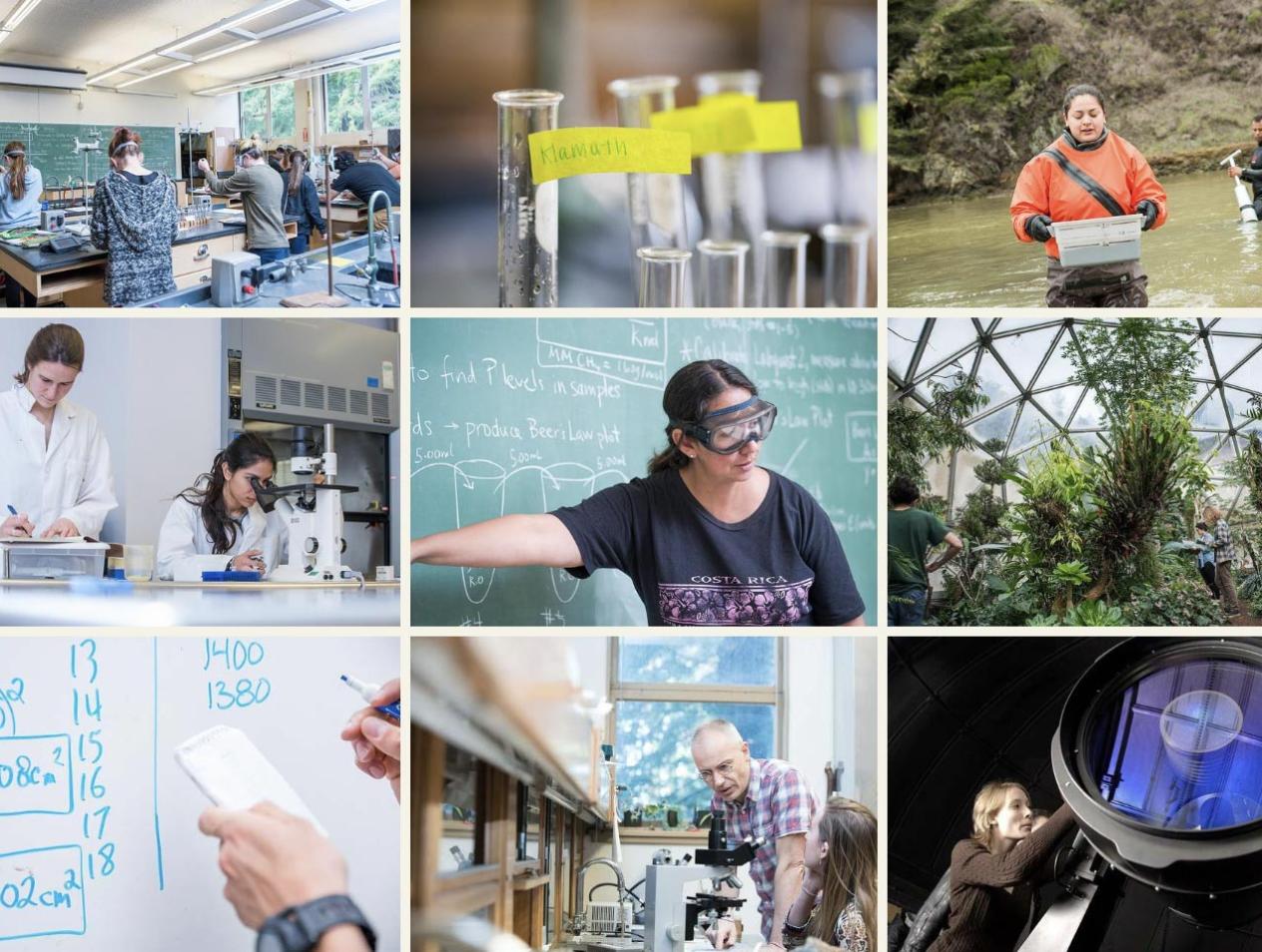Breadcrumb
Achievements
Find out what our students, faculty, and staff are being recognized for.
Pascal BIWOLE
School of Engineering
A recent publication in the first-quartile (Q1) journal "Energy and Buildings": https://www.sciencedirect.com/science/article/pii/S0378778824008235
Dino Santia, Kerry Byrne
Forestry, Fire & Rangeland Management
RRS undergraduate Dino Santia was awarded a $3,750 research award over this past summer to support his ongoing independent research project in Kerry Byrne's lab, entitled "Seed Bank Emergence Study."
Dino Santia, Kerry Byrne
Forestry, Fire & Rangeland Management
RRS undergraduate Dino Santia has been awarded an $8,000 NEXTGEN research fellowship from the Agricultural Research Institute to support his independent research project in the Byrne Lab (ESM Dept), entitled "Seed bank Emergence Study."
Jesse Laine, Kerry Byrne
Environmental Science & Management
Natural Resources graduate student Jesse Laine (ESM option) has been awarded a $25,000 NEXTGEN research fellowship from the Agricultural Research Institute to support his proposed study entitled "Insect biodiversity in a restored coastal grassland." Jesse is a first-year graduate student in Kerry Byrne's lab.
Wendy Kornberg, Claudia Alfaro Hernandez
Forestry, Fire & Rangeland Management
Undergraduate students Wendy Kornberg and Claudia Alfaro Hernandez were each awarded an $11,000 California State University Agriculture Research Initiative-NEXTGEN in a systemwide competition to conduct independent research related to agricultural resources with Dr. Justin Luong. Wendy Kornberg will evaluate how indigenous microorganisms (IMO) inoculation can be used to benefit regenerative tomato production in south county. Claudia Alfaro Hernandez will evaluate how microhabitats created by solar microgrids shape plant communities and soil properties on local rangelands. The data will be used to inform ecological restoration plant selection for future management goals related to native plant diversity, pollinator habitat, and sheep grazing.
Rosemary Sherriff and Andrew Stubblefield
Forestry, Fire & Rangeland Management
Drs. Andrew Stubblefield and Rosemary Sherriff are Coordinating Leads on California’s Fifth Climate Change Assessment’s Regional Synthesis Report for the North Coast, focusing on how climate change is impacting six counties in northwestern California. The assessment is supported through the Governor’s Office of Planning and Research and aims to inform on-the-ground implementation and decision-making at the local, regional, tribal, and state levels, focusing on communities most vulnerable to climate change. Lead authors include Dr. Daniel Lipe, Dr. David Narum, Dr. Keith Parker, and Jennifer Marlow.
Learn more about the assessment here.
Allison Bronson
Biological Sciences
Dr. Allison Bronson received a National Science Foundation grant to study the inner ear structures of sharks, using CT scanning and Magnetic Resonance Imaging (MRI). This work will evaluate whether ear shape differs between shark species living in different habitats, potentially developing a predictive model for inferring the ecology of extinct fishes. The project involves collaborators at the University of Michigan, University of North Carolina WIlmington, University of Birmingham, and University of Auckland, and will use specimens from Cal Poly Humboldt’s Fish Collection and other museums throughout the United States.
Rachael Wade
Biological Sciences
Dr. Rachael Wade received a 2024 Norma J. Lang Fellowship award from the Phycological Society of America. The award supports genome sequencing of the red alga, C. berteroi. While algal species tend to assume restricted ranges, C. berteroi is widespread and can be found across nearshore environments in the Atlantic and Pacific Oceans. Dr. Wade’s work will explore this cosmopolitanism, and data from the study will later be used to reconstruct the species’ ancestral range, and identify adaptive traits that have facilitated its distribution. Understanding drivers of cosmopolitanism can increase understanding of algal adaptation in the face of climate change.
Rachael Wade
Biological Sciences
Dr. Rachael Wade received a 2024 Norma J. Lang Fellowship award from the Phycological Society of America. The award supports genome sequencing of the red alga, C. berteroi. While algal species tend to assume restricted ranges, C. berteroi is widespread, and can be found across nearshore environments in the Atlantic and Pacific Oceans. Dr. Wade’s work will explore this cosmopolitanism, and data from the study will later be used to reconstruct the species’ ancestral range, and identify adaptive traits that have facilitated its’ distribution. Understanding drivers of cosmopolitanism can increase understanding of algal adaptation in the face of climate change.
Hunter Circe, Sean Stippick, Sarah Lasley
Environmental Studies
A film made by Environmental Studies majors Hunter Circe and Sean Stippick in Professor Sarah Lasley's "Social Change Filmmaking" class last spring was accepted into the Earth Connection Film Festival. Their film, Troglodyte, follows a man paralyzed by anxiety over a looming climate disaster. His mental turmoil and isolation, brought on by an obsessive consumption of climate doom media, manifests as a physical sea cave, which he ultimately escapes when his television breaks. Hunter and Sean will receive $300 for being accepted and have their film premiered on July 20 at the Buskirk Chumley Theatre in Bloomington, IN.






